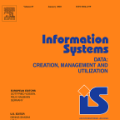Electronic Health Record (EHR) has become an essential tool in the healthcare ecosystem, providing authorized clinicians with patients' health-related information for better treatment. While most developed countries are taking advantage of EHRs to improve their healthcare system, it remains challenging in developing countries to support clinical decision-making and public health using a computerized patient healthcare information system. This paper proposes a novel EHR architecture suitable for developing countries--an architecture that fosters inclusion and provides solutions tailored to all social classes and socioeconomic statuses. Our architecture foresees an internet-free (offline) solution to allow medical transactions between healthcare organizations, and the storage of EHRs in geographically underserved and rural areas. Moreover, we discuss how artificial intelligence can leverage anonymous health-related information to enable better public health policy and surveillance.
翻译:电子健康记录(EHR)已成为保健生态系统的一个重要工具,为经授权的临床医生提供了与病人健康有关的信息,以更好地治疗。虽然大多数发达国家正在利用EHR来改善它们的保健体系,但在发展中国家,使用计算机化的病人保健信息系统支持临床决策和公共卫生仍然是一项挑战。本文提出了适合发展中国家的新的EHR架构,这一架构将促进包容性,并提供适合所有社会阶层和社会经济地位的解决方案。我们的架构预见到一个无互联网(离线)解决方案,允许保健组织之间的医疗交易,并将EHR存储在地理上服务不足和农村地区。此外,我们讨论了人工智能如何利用匿名健康相关信息,从而改进公共卫生政策和监督。




